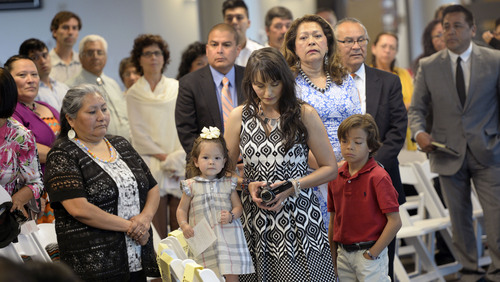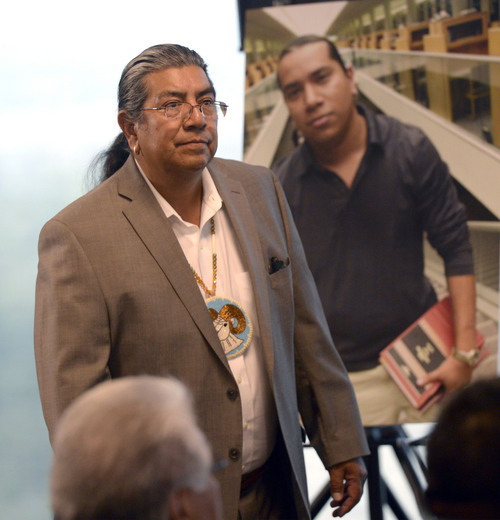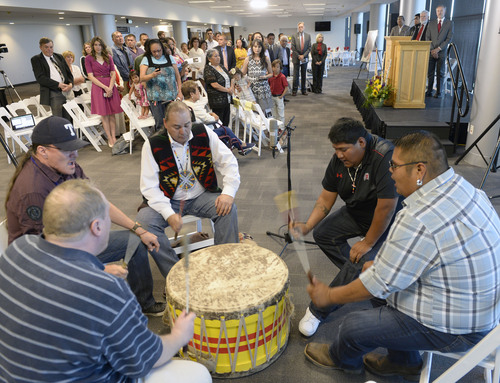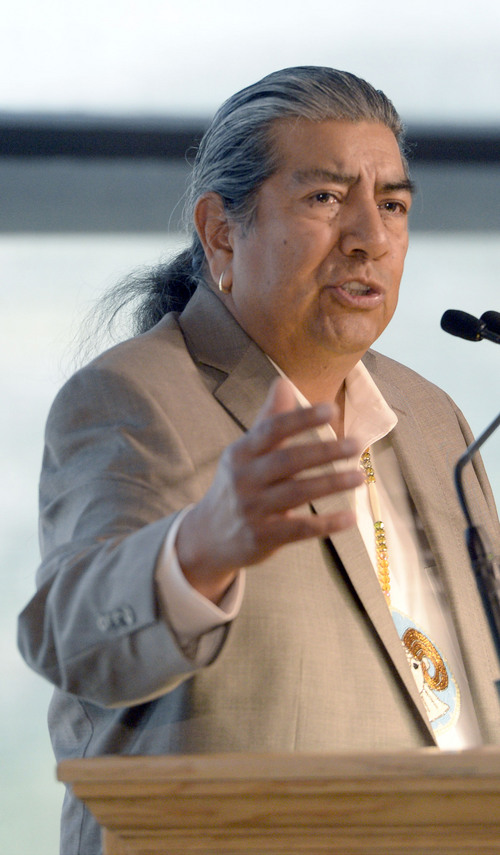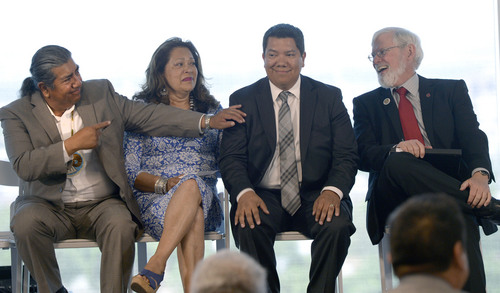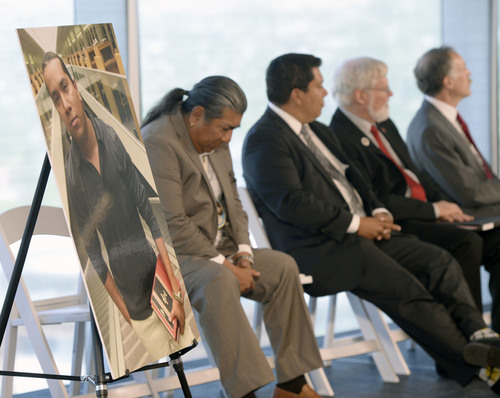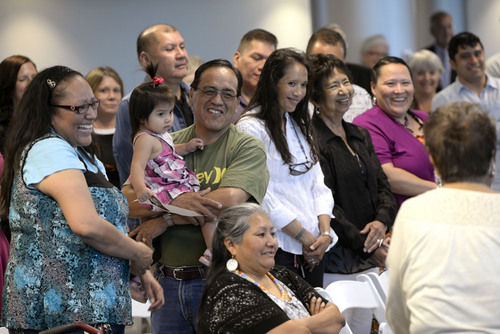This is an archived article that was published on sltrib.com in 2014, and information in the article may be outdated. It is provided only for personal research purposes and may not be reprinted.
David Cuch was the first Ute tribe member to enroll in the University of Utah law school, and so far he's been the last.
"We need more Indian lawyers," said his brother, Cameron Cuch. "It's important to our tribe and community we have people who understand our issues and concerns and who will fight to protect our way of life."
The Cuch family joined Ute tribe and university leaders Friday to announce a new scholarship for Ute law students in honor of David Arapene Cuch, who died in 2007, in his third year at the S.J. Quinney College of Law. He was 28.
No Ute has enrolled since. During the past 14 years, about 2,000 students have graduated from the law school; 17 were American Indian.
Donations from David Cuch's family and friends already total $40,000. If the fund rises to $50,000 before a Ute tribe member or a member's child applies, it will be opened to all American Indian students.
"While he's not here today, he's opened the door for others to follow," said Cameron Cuch. "It's time for us all together to do what we can to see about bringing a new generation of tribal lawyers."
But how to get the next generation interested in college? Cameron Cuch and his father, former state Division of Indian Affairs director Forrest Cuch, say the Ute logo and team name can help.
"What having the logo does is form a connection," said Forrest Cuch, who supported the use of the name amid recent pressure to phase it out. "In any relationship, there will be good and bad. You just need to emphasize the good. Sure, people are going to dress up and wear war paint, but you've just got to use that to educate everyone about it."
The rising cost of a legal education, meanwhile, is making scholarship money even more important, said S.J. Quinney interim dean Robert Adler.
"Law students are graduating with more debt and are forced to take jobs only to make money rather than to serve the community," he said. Scholarships make it easier to take lower-paid public service jobs "rather than worrying entirely about paying their loans."
David Cuch grew up on the Uintah-Ouray reservation in eastern Utah and Martha's Vineyard, Mass., with his mother's Wampanoag Tribe of Aquinnah.
He graduated from Wasatch Academy, going on to earn a bachelor's degree in economics at Westminster College and a master's in public administration from the U. He was awarded his law degree posthumously.
David Cuch also volunteered at the Jordan School District, teaching traditional songs and dances to kids who had grown up in a more urban setting.
"He would tell them, 'You don't have to be a rocket scientist to go to school,' " said his mother, Carla Cuch. "He believed that if you wanted to and put your mind to it, you could do it, and he did it."
The U. also pledged to dedicate more scholarship money to Ute Tribe members for any area of study as part of the new memorandum of understanding signed with tribe last month allowing the school to continue to use the Ute team name. The school now has nearly $100,000 in two new funds, one specifically for Ute students and the other for any American Indian students.
Twitter: @lwhitehurst


